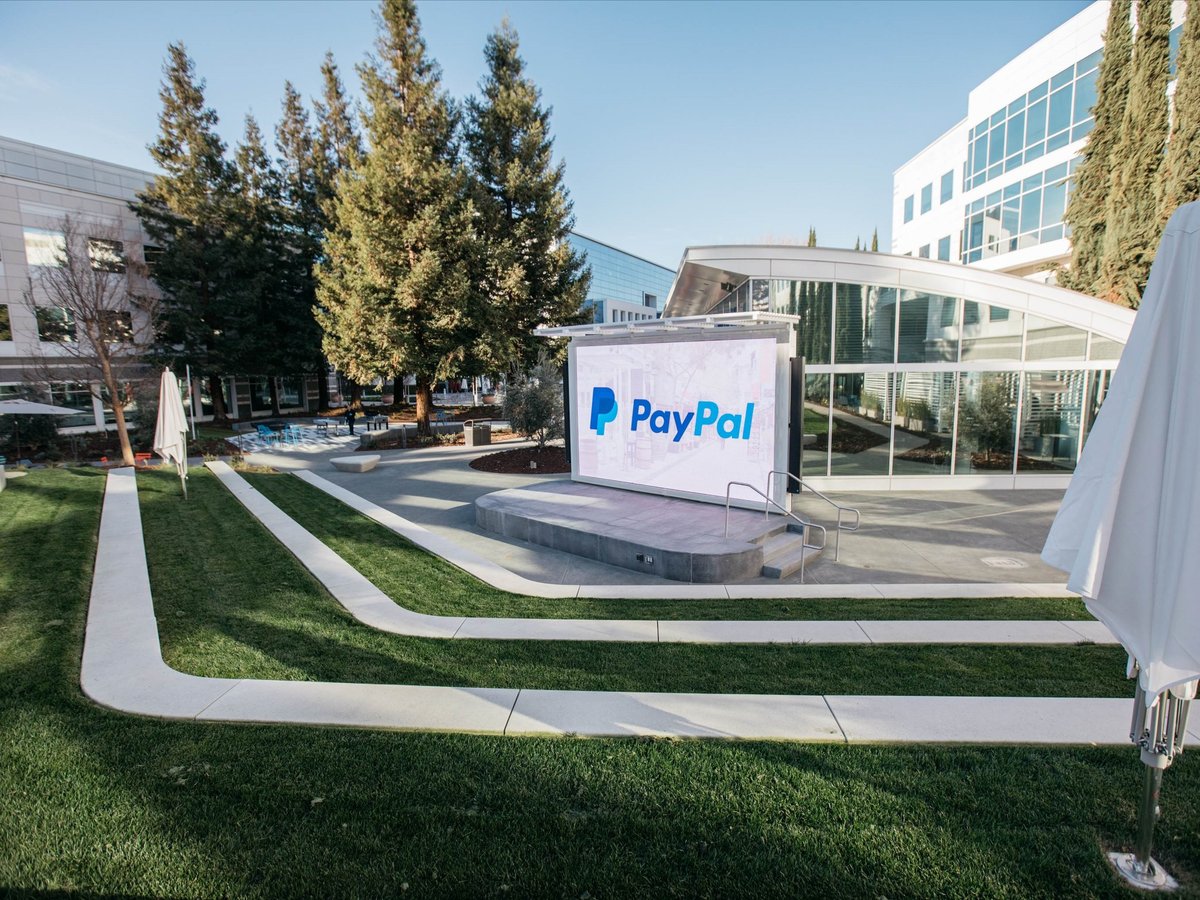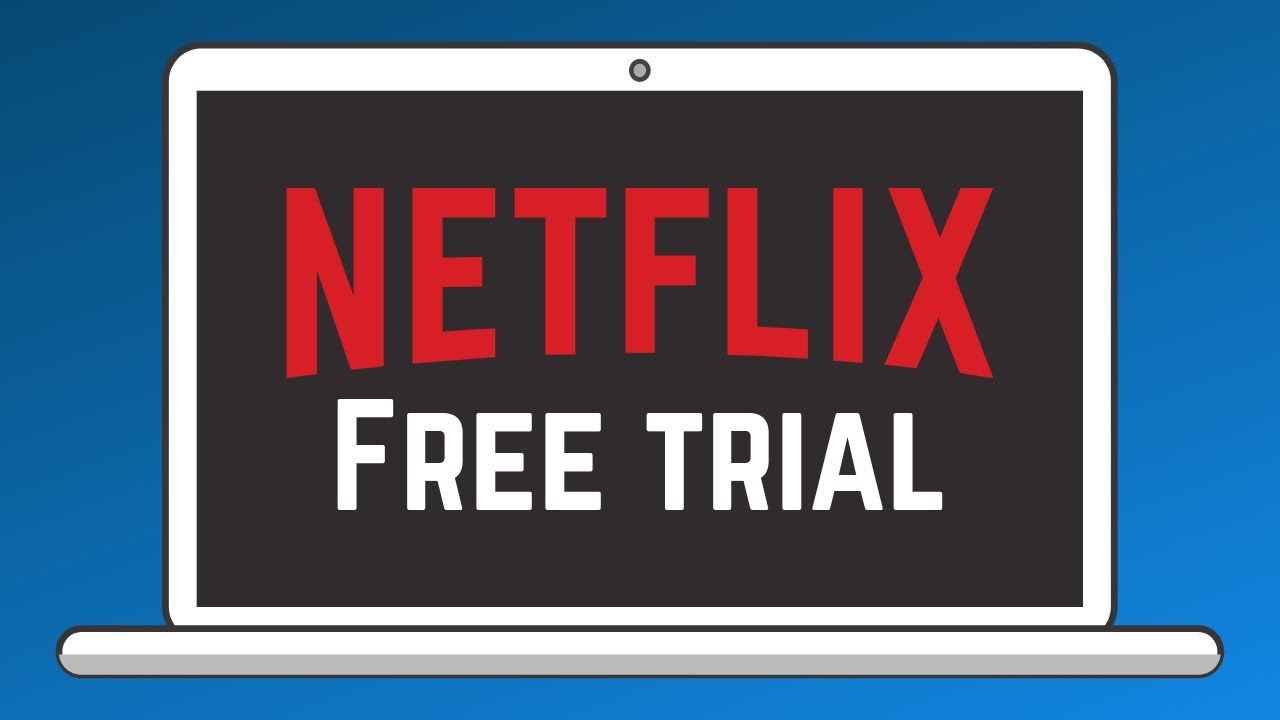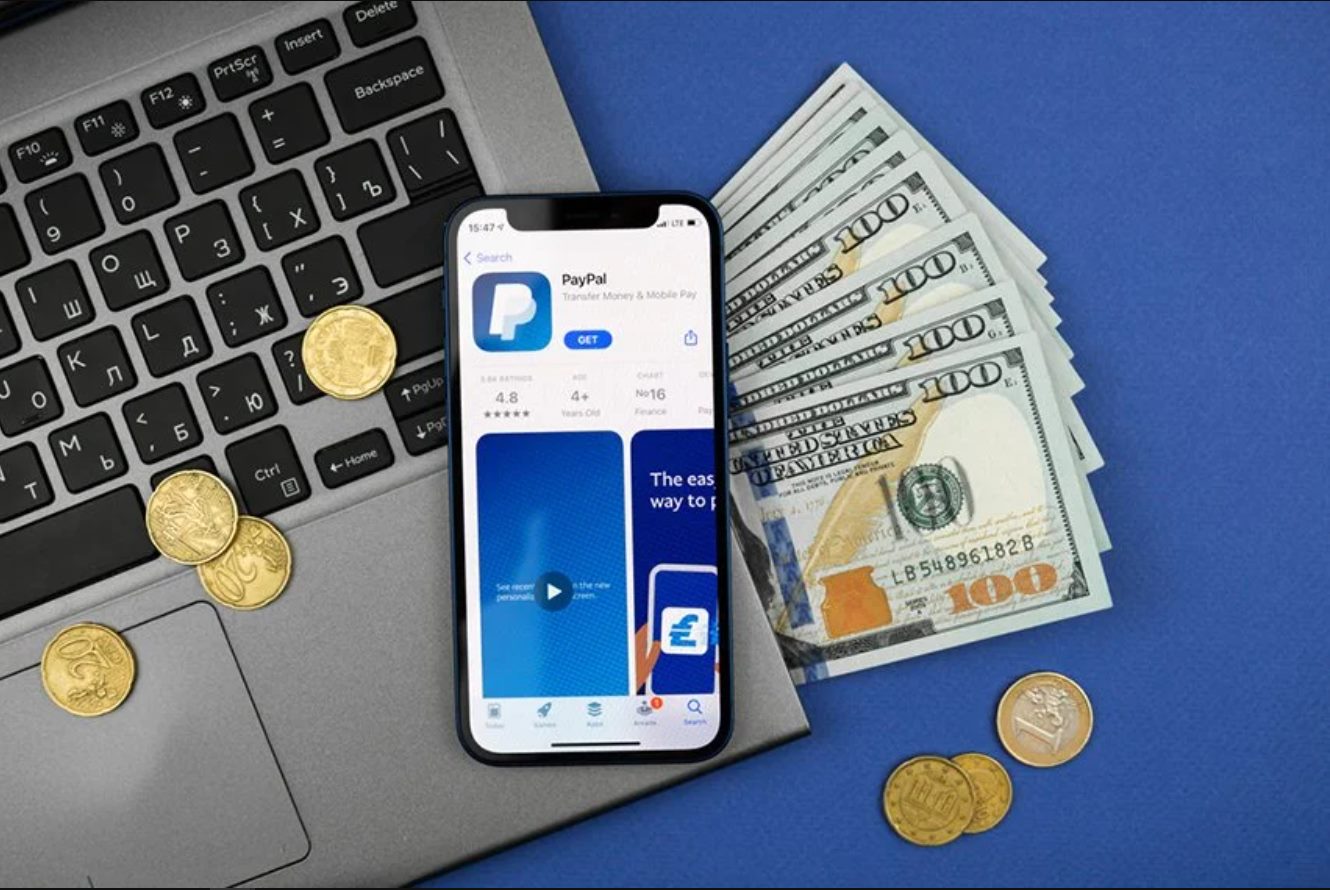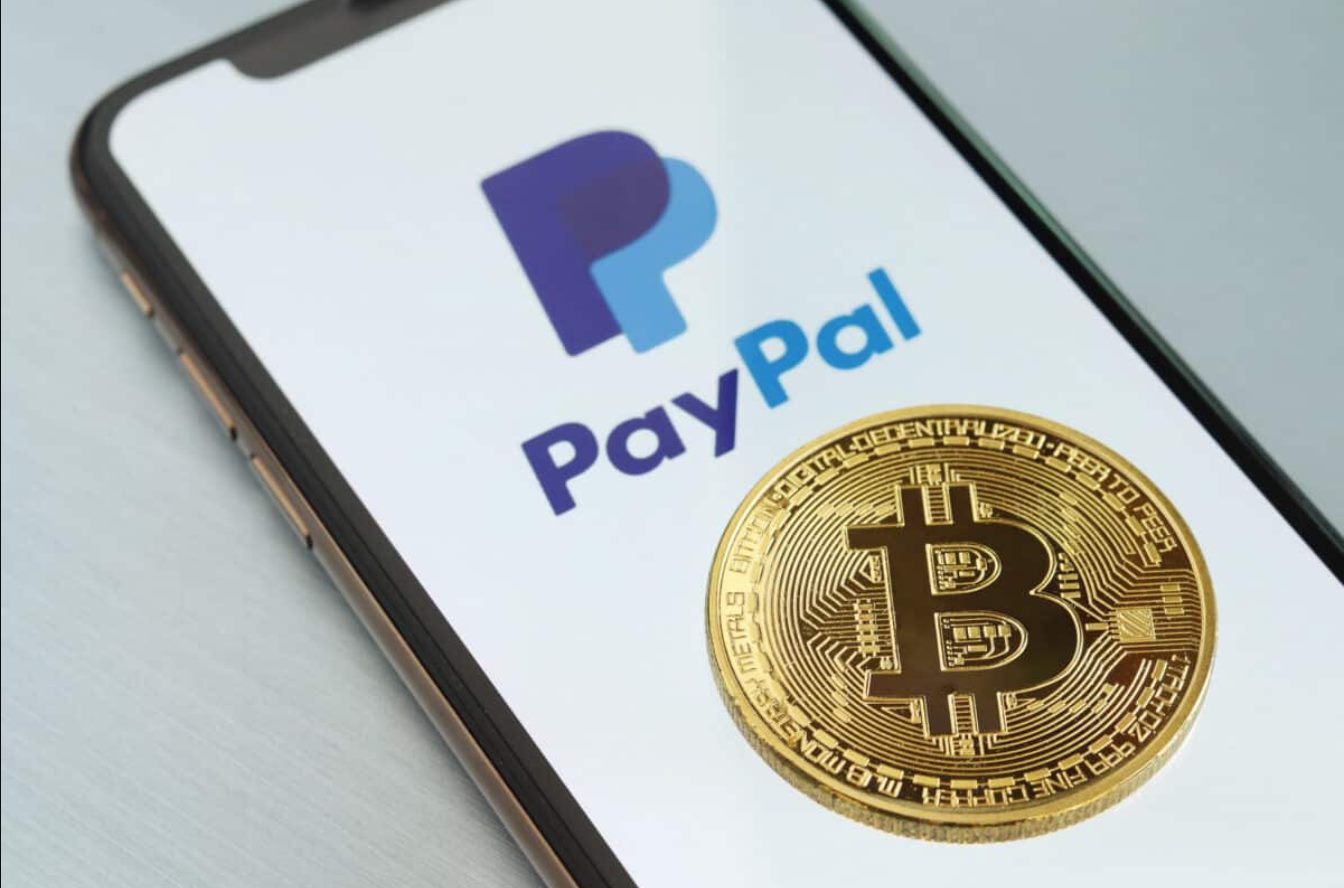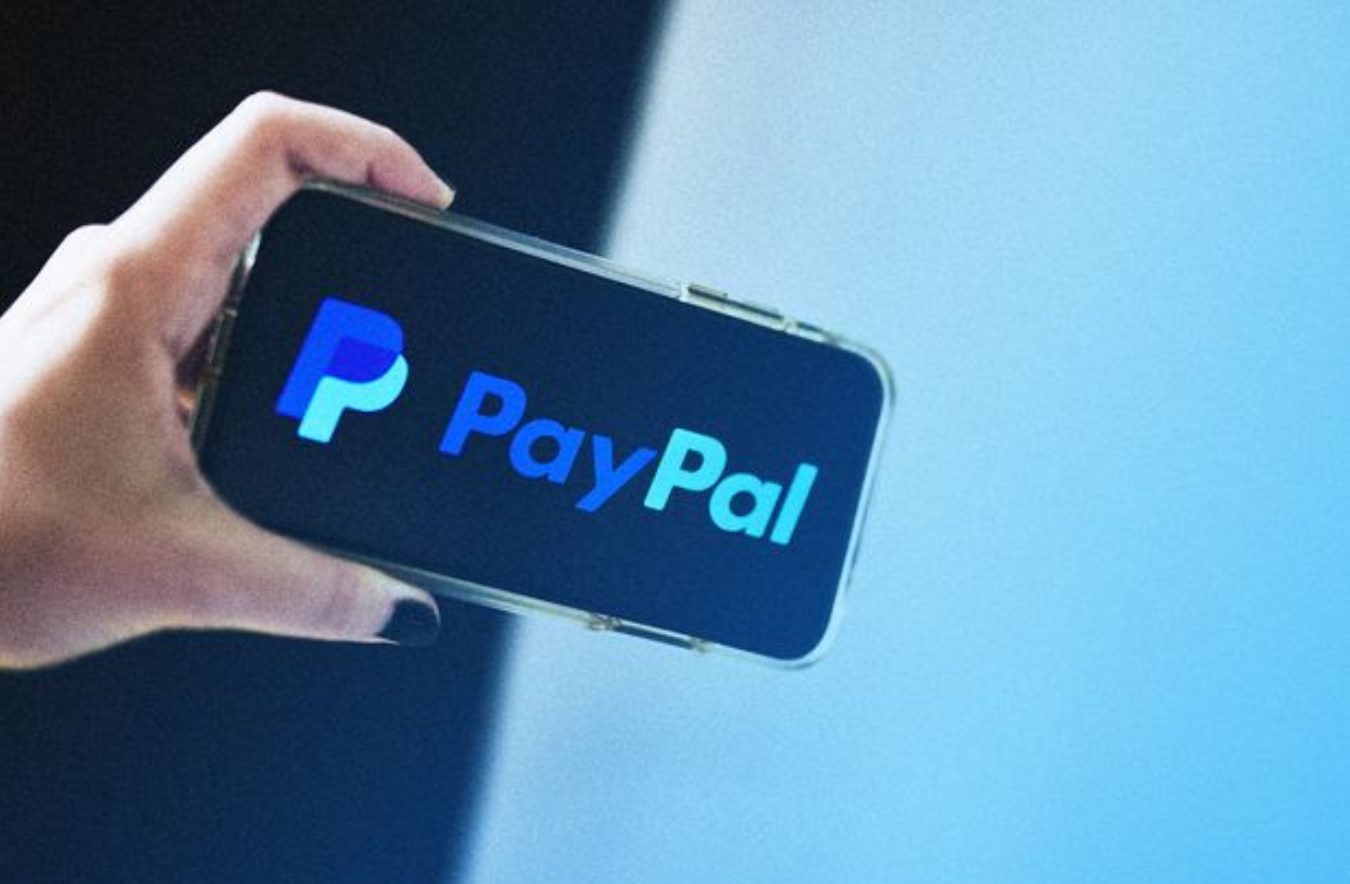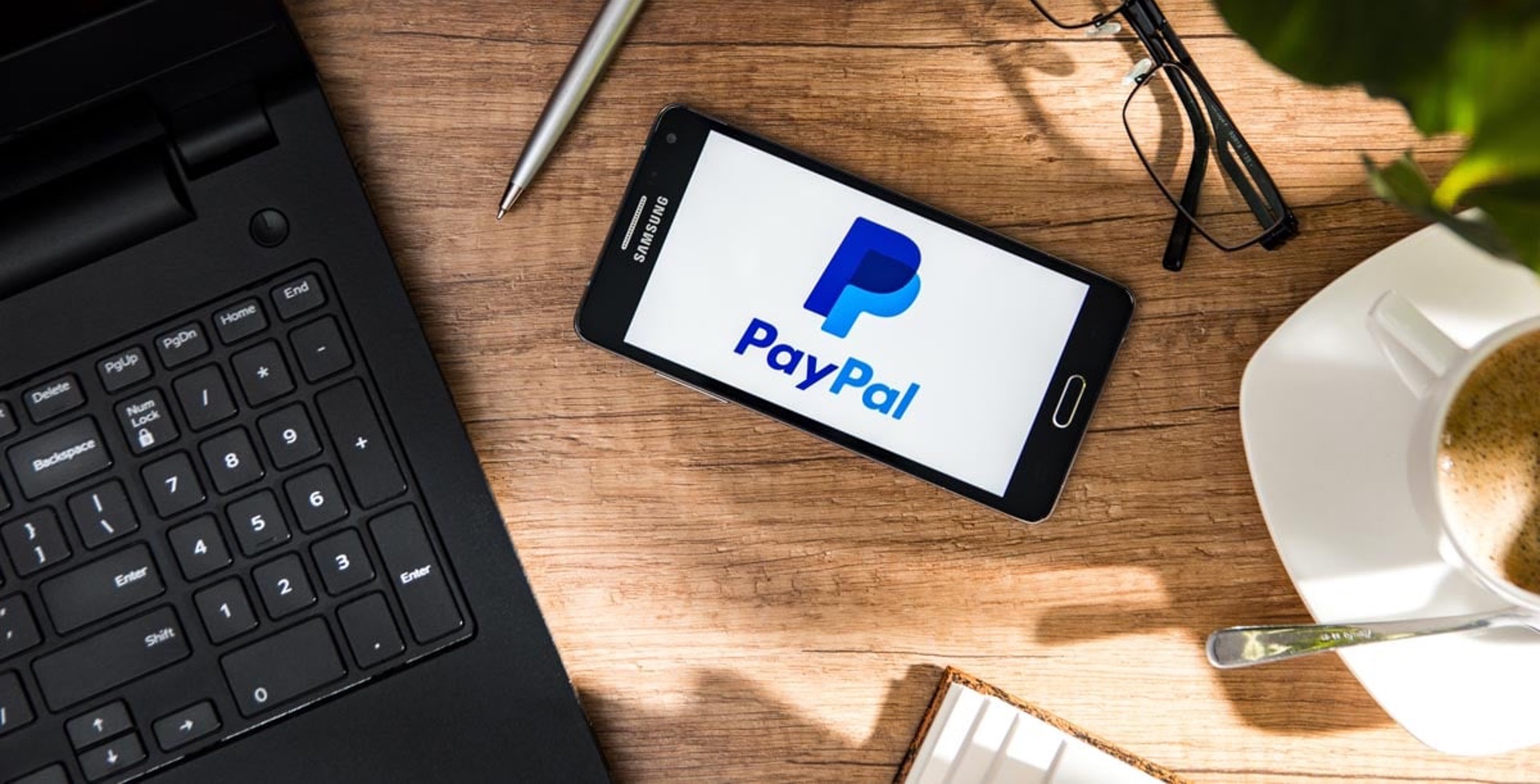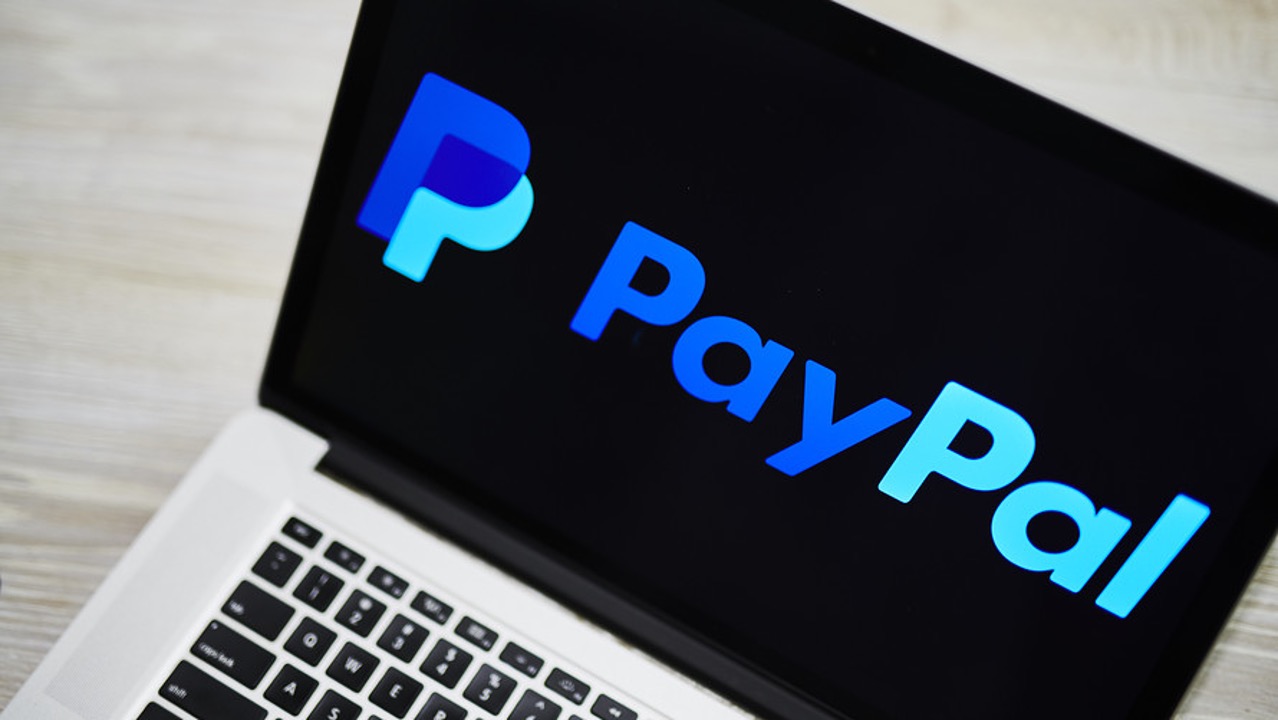Introduction
PayPal, a global leader in online payment solutions, has recently undergone a change in ownership that has sparked considerable interest and speculation. With millions of active users and billions of dollars in transactions processed annually, PayPal plays an integral role in the digital economy. It has revolutionized the way people send and receive money, making online transactions easier and more secure than ever before.
Founded in 1998 by a group of visionaries including Elon Musk, PayPal quickly became a household name in the late 1990s and early 2000s. Originally conceived as a secure method for transferring money between handheld devices, the company evolved into an online payment platform that revolutionized the e-commerce industry.
In 2002, PayPal caught the attention of e-commerce giant eBay, which recognized its potential and acquired the company for a staggering $1.5 billion. Under eBay’s ownership, PayPal experienced exponential growth, with its user base expanding and revenue skyrocketing. The integration of PayPal as an eBay payment option further solidified its position in the online marketplace.
However, in 2015, a significant chapter in PayPal’s history unfolded as the company announced its separation from eBay, becoming an independent publicly traded company once again. This move allowed PayPal to focus on expanding its services and cater to a broader range of users beyond the eBay ecosystem.
With the separation from eBay came a new era for PayPal, marked by the appointment of Dan Schulman as the new CEO. Schulman brought with him a wealth of experience and a progressive vision for the company’s future. Since taking the helm, Schulman has led PayPal into uncharted territories, propelling it to new heights and redefining its role in the rapidly evolving digital payment landscape.
In this article, we will take an in-depth look at the new owner of PayPal, Dan Schulman, and his impact on the company’s direction. We will delve into Schulman’s background, explore his previous experience in the financial industry, and examine the vision he has for PayPal. Join us as we explore the exciting chapter in PayPal’s history under the leadership of Dan Schulman.
Early History of PayPal
PayPal’s journey began in 1998 when Max Levchin, Peter Thiel, and Luke Nosek founded Confinity, a company focused on developing software security solutions. While initially working on cryptography, Levchin and his team recognized the need for a digital payment system as the internet gained popularity.
Confinity merged with X.com, an online banking company founded by Elon Musk, in March 2000. At the time of the merger, X.com had already developed its own payment service, but it was Levchin’s vision for an online payment system that took center stage.
The combined entity rebranded as PayPal in 2001, placing a strong emphasis on consumer-friendly features. Their innovative technology allowed users to securely and conveniently send money via email, paving the way for the rapid growth of e-commerce.
Recognizing the potential of PayPal, venture capital firm Sequoia Capital invested $30 million in the company in October 2001. This infusion of funds provided the necessary resources for PayPal to expand its user base and establish its presence in the online payment market.
PayPal’s user-friendly interface, ease of use, and robust security measures quickly attracted a significant number of users. This success caught the attention of online marketplace eBay, which saw the potential of incorporating PayPal as a payment option within its platform.
In 2002, eBay acquired PayPal for $1.5 billion, securing its position as the preferred payment method for eBay transactions. This strategic partnership propelled the growth of both companies, with PayPal becoming the de facto online payment system for millions of eBay users around the world.
Under eBay’s ownership, PayPal continued to innovate and expand its services, taking advantage of the growing popularity of e-commerce. It introduced new features such as the PayPal Buyer Protection program, which provided an added layer of security for buyers, and the PayPal Here mobile app, allowing small businesses to accept payments on the go.
By the time PayPal celebrated its 10th anniversary in 2008, it had processed over $60 billion in transactions and had more than 100 million active registered accounts.
In the next section, we will explore PayPal’s separation from eBay and the dawn of a new era for the company.
Acquisition by eBay
One of the defining moments in PayPal’s history came in 2002 when eBay, the world’s largest online marketplace, acquired the company for a staggering $1.5 billion. This acquisition marked a turning point for both PayPal and eBay, propelling them to new heights and transforming the way people buy and sell goods online.
At the time of the acquisition, PayPal was already gaining momentum as a leading online payment platform. Its user-friendly interface and secure infrastructure made it the ideal choice for eBay users to complete transactions quickly and effortlessly.
eBay recognized the potential of integrating PayPal into its marketplace, as it would streamline the buying and selling process and build trust among users. By offering PayPal as a payment option, eBay eliminated the need for buyers and sellers to exchange sensitive financial information directly, reducing the risk of fraud and enhancing user confidence.
The acquisition brought together two industry powerhouses, each with its own unique strengths. eBay’s vast user base and global reach complemented PayPal’s secure payment infrastructure and seamless user experience. This synergistic partnership propelled the growth of both companies, as they tapped into new markets and expanded their services.
With PayPal’s integration into the eBay platform, users saw a significant increase in the convenience and security of online transactions. PayPal quickly became the preferred payment method for eBay purchases, reflecting the trust that users had in the platform’s ability to handle transactions smoothly and securely.
In addition to enhancing the buyer experience, PayPal’s integration with eBay also provided unprecedented benefits for sellers. Payments were processed quickly, eliminating the need for sellers to wait for checks to clear or deal with the hassles of handling cash. This accelerated the overall transaction process, allowing sellers to provide a seamless experience to their customers.
Furthermore, PayPal offered seller protection, which assured eBay sellers that they would be reimbursed for eligible transactions in case of fraudulent activity or disputes. This added layer of security incentivized more sellers to join eBay and facilitated the growth of the online marketplace.
Thanks to the acquisition by eBay, PayPal experienced rapid growth and became the industry standard for online payments. The integration with eBay propelled PayPal’s user base from millions to tens of millions, solidifying its position as a global leader in the digital payment space.
However, in 2015, an exciting transition occurred as PayPal announced its separation from eBay, signaling a new era for the company. In the next section, we will delve into the details of this separation and the implications it had for PayPal’s future.
Separation from eBay
After more than a decade of being a subsidiary of eBay, PayPal made the groundbreaking decision to separate and become an independent publicly traded company in 2015. This move marked a turning point in PayPal’s history, allowing the company to chart its own course and focus on expanding its services beyond the eBay marketplace.
The separation from eBay was driven by several factors, including the changing landscape of the digital payments industry and the desire for both eBay and PayPal to pursue their respective growth strategies independently.
From eBay’s perspective, the decision to separate PayPal was based on a strategic shift to focus more on its core marketplace business. By separating PayPal, eBay aimed to create more opportunities for innovation and flexibility within its own operations.
For PayPal, the separation meant the freedom to develop partnerships and expand its services beyond eBay’s ecosystem. While PayPal had proven itself as a trusted and reliable payment option within eBay, the company recognized the need to diversify its revenue streams and tap into new markets.
Upon completion of the separation, PayPal became an independent publicly traded company listed on the NASDAQ stock exchange, under the ticker symbol PYPL. This meant that PayPal could now make strategic decisions and investments that aligned with its long-term vision without the constraints of being tied to eBay’s business objectives.
The separation also allowed PayPal to focus on innovation and the development of its core strengths. With a renewed sense of purpose, the company set its sights on expanding its global presence, investing in cutting-edge technologies like mobile payments, and exploring opportunities in omni-channel commerce.
By leveraging its extensive user base and technology infrastructure built during its tenure with eBay, PayPal quickly established itself as a leading player in the online payments industry. It forged partnerships with major retail chains, e-commerce platforms, and digital service providers, expanding its reach and offering its services to a wider audience.
The separation from eBay also freed PayPal from the potential conflicts of interest that may have arisen due to competing priorities. As an independent company, PayPal could now forge partnerships and collaborations that may not have been possible while under the ownership of eBay.
Since the separation, PayPal has continued to thrive and innovate in the digital payments landscape. Its focus on user experience, security, and seamless integration across various platforms has made it a preferred choice for consumers and businesses alike.
In the next section, we will explore the new owner of PayPal, Dan Schulman, and his impact on the company’s direction and success.
New Owner: Dan Schulman
After the separation from eBay, PayPal turned to Dan Schulman to lead the company as its new CEO. With a wealth of experience in the financial industry and a passion for social impact, Schulman brought a fresh perspective and a transformative vision to PayPal.
Before joining PayPal, Schulman held executive positions at renowned companies such as American Express and AT&T. He had a proven track record of leading successful business transformations and driving innovation in the digital payments space.
Under Schulman’s leadership, PayPal shifted its focus beyond solely being a digital payment platform. He saw the potential for PayPal to become a comprehensive financial services provider, offering a range of products and solutions that catered to the evolving needs of consumers and businesses.
One of the key initiatives spearheaded by Schulman was the expansion of PayPal’s mobile payment capabilities. Recognizing the increasing adoption of smartphones and the growing trend of digital wallets, he positioned PayPal as a leading player in the mobile payment industry.
Schulman also prioritized the enhancement of PayPal’s user experience. He led efforts to simplify and streamline the payment process, making it faster, more secure, and more convenient for users. Additionally, he championed the development of innovative features such as One Touch, which allowed users to make purchases with a single touch, further reducing friction in online transactions.
Another pivotal moment in Schulman’s tenure was the acquisition of Venmo, a peer-to-peer payment platform popular among millennials. This acquisition allowed PayPal to tap into the younger demographic and solidify its position as a leader in the digital payments space.
Furthermore, Schulman recognized the importance of financial inclusion and the need to address underserved communities. Under his leadership, PayPal launched initiatives to provide financial services to the unbanked and underbanked populations, promoting economic empowerment and inclusion.
Through Schulman’s progressive vision and strategic initiatives, PayPal experienced significant growth and success. The company expanded its revenue streams, increased its user base, and saw its stock value rise to new heights.
Schulman’s leadership also fostered a culture of innovation and collaboration within PayPal. He encouraged employees to think outside the box, experiment with new ideas, and embrace emerging technologies. This entrepreneurial mindset propelled PayPal to stay ahead of the curve and remain a leader in the digital payment industry.
With Schulman at the helm, PayPal has become more than just a payment service. It has evolved into a comprehensive financial platform that offers a wide range of services, from peer-to-peer payments to merchant solutions and beyond.
In the next section, we will explore Schulman’s vision for PayPal and the impact his leadership has had on the company’s evolution.
Schulman’s Background and Previous Experience
Dan Schulman, the CEO of PayPal, brings a wealth of knowledge and expertise to his role. With a diverse background in the financial industry and a passion for driving social impact, Schulman has consistently demonstrated his ability to lead successful transformations and drive innovation in the digital payments landscape.
Prior to joining PayPal, Schulman held executive positions at renowned companies such as American Express and AT&T. During his time at American Express, he spearheaded the company’s move into digital payments and played a key role in launching innovative products and services.
At AT&T, Schulman led the company’s prepaid services division and focused on expanding access to mobile communication for low-income consumers. This experience underscored Schulman’s commitment to financial inclusion and providing services to underserved communities.
After his tenure at AT&T, Schulman embarked on a new challenge as the CEO of Virgin Mobile USA. He led the company through a period of significant growth and positioned it as a leading player in the prepaid mobile market, catering to the needs of younger consumers.
Throughout his career, Schulman has demonstrated a deep understanding of consumer behavior and the evolving landscape of digital technology. He has a keen sense of how to leverage emerging trends and technologies to drive business growth and deliver exceptional user experiences.
However, it is not just Schulman’s extensive corporate experience that sets him apart. He is also known for his passion for social impact and his commitment to making a positive change in the world. Under his leadership, PayPal has launched several initiatives aimed at promoting financial inclusion and economic empowerment.
One notable initiative is PayPal’s partnership with Grameen America, a microfinance organization that provides loans, savings programs, and financial education to low-income women entrepreneurs. Through this partnership, PayPal has helped empower underserved communities, enabling them to build sustainable businesses and improve their financial well-being.
Additionally, Schulman has been a strong advocate for diversity and inclusion within the company. He believes that diverse teams bring diverse perspectives, leading to better decision-making and innovation. Under his guidance, PayPal has taken steps to foster an inclusive work environment, promote diversity in leadership positions, and support underrepresented groups.
Schulman’s diverse background, extensive industry knowledge, and commitment to social impact have proven to be invaluable assets in his role as CEO of PayPal. His leadership has not only driven the company’s growth and success but also positioned PayPal as a force for positive change in the financial industry.
In the next section, we will explore Schulman’s vision for PayPal and how his leadership has shaped the company’s direction and impact.
Schulman’s Vision for PayPal
Dan Schulman, the CEO of PayPal, has a clear vision for the company that goes beyond being just a payment service provider. Schulman’s vision is to transform PayPal into a comprehensive digital financial platform that empowers individuals and businesses, provides seamless experiences, and drives positive social impact.
One of the key pillars of Schulman’s vision is the focus on financial inclusion. He believes that everyone should have access to safe, secure, and affordable financial services. To achieve this, Schulman has directed PayPal to develop products and initiatives that cater to underserved communities, providing them with the tools and resources they need to participate in the digital economy.
Schulman is also passionate about leveraging technology to drive innovation and enhance the user experience. He envisions PayPal as a leader in the adoption and integration of emerging technologies such as mobile payments, contactless payments, and blockchain. By staying at the forefront of technological advancements, PayPal can continue to provide its users with convenient, secure, and frictionless payment experiences.
Furthermore, Schulman recognizes the importance of building strong partnerships and collaborations to fuel PayPal’s growth. He seeks to establish strategic alliances with financial institutions, merchants, and technology companies to expand the reach and capabilities of PayPal’s platform. These partnerships enable PayPal to offer a wider range of services and tap into new markets, ultimately enhancing the value it provides to its users.
In line with his commitment to social impact, Schulman envisions PayPal as a catalyst for positive change. He believes that the company has a responsibility to address societal challenges and make a meaningful difference in the lives of individuals and communities. Through initiatives like PayPal’s Small Business Empowerment Program and their support for nonprofits, Schulman aims to leverage PayPal’s resources and technology to create opportunities and drive economic empowerment.
Under Schulman’s leadership, PayPal has also embraced a culture of innovation and entrepreneurship. He encourages employees to think creatively, challenge the status quo, and pursue new ideas. This entrepreneurial spirit has enabled PayPal to continuously evolve its products and services, adapt to changing market dynamics, and stay ahead of the competition.
Schulman’s vision for PayPal goes beyond financial transactions. He sees the company as a force for positive change, driving financial inclusion, promoting innovation, and making a meaningful impact in the lives of its users and communities around the world.
In the next section, we will explore the impact of Schulman’s leadership on PayPal and how it has shaped the company’s success and trajectory.
Impact of Schulman’s Leadership
Dan Schulman’s leadership as CEO of PayPal has had a profound impact on the company’s growth, transformation, and success. Under his guidance, PayPal has become a global leader in the digital payment industry, revolutionizing the way people send and receive money and driving positive change in the financial services sector.
One of the most significant impacts of Schulman’s leadership is the expansion of PayPal’s services and reach. He has driven the company to evolve from a payment service provider into a comprehensive digital financial platform, offering a wide range of products and solutions. These include peer-to-peer payments, merchant services, mobile payments, and innovative features such as One Touch and Venmo. This expansion has allowed PayPal to serve an increasingly diverse customer base, catering to the needs of individuals, small businesses, and large enterprises.
Schulman’s emphasis on financial inclusion has had a transformative effect on PayPal’s role in society. He believes that everyone, regardless of their background or financial status, should have access to safe and affordable financial services. Under his leadership, PayPal has launched initiatives to address the needs of underserved communities, providing them with the tools to participate in the digital economy. These initiatives include partnerships with microfinance organizations, support for small businesses, and efforts to provide financial education and resources to those in need.
Furthermore, Schulman has fostered a culture of innovation and entrepreneurship within PayPal. He encourages employees to think creatively, take risks, and challenge traditional boundaries. This focus on innovation has driven the development of new products and features that enhance the user experience and anticipate the evolving needs of customers. By fostering a culture of innovation, Schulman has positioned PayPal as an industry leader, constantly pushing the boundaries of what is possible in the digital payments landscape.
Under Schulman’s leadership, PayPal has also expanded its global presence through strategic partnerships and collaborations. He has spearheaded efforts to establish alliances with financial institutions, merchants, and technology companies worldwide. These partnerships have allowed PayPal to enter new markets, reach more customers, and expand its ecosystem of services. Schulman’s global perspective and dedication to building strong relationships have been instrumental in PayPal’s international growth and success.
Moreover, Schulman’s commitment to social impact and corporate responsibility has positioned PayPal as a force for positive change. He has championed initiatives that promote financial empowerment, diversity, and inclusion. PayPal’s programs to support small businesses, empower women entrepreneurs, and drive economic opportunity demonstrate Schulman’s dedication to using PayPal’s resources and technology for the greater good.
Overall, Schulman’s leadership has transformed PayPal into a company that goes beyond simply facilitating payments. His strategic vision, emphasis on innovation, commitment to financial inclusion, and dedication to corporate responsibility have redefined PayPal’s role in the digital economy. Under his guidance, PayPal has thrived, delivering exceptional value to its users, driving positive change in the industry, and cementing its position as a global leader in digital payments.
In the next section, we will conclude our exploration of the impact of Dan Schulman’s leadership and reflect on the future of PayPal under his guidance.
Conclusion
The ownership of PayPal has experienced significant shifts throughout its history, from its acquisition by eBay to its separation and subsequent journey as an independent company. Under the leadership of Dan Schulman, PayPal has thrived and positioned itself as a global leader in the digital payments industry.
Schulman’s vision for PayPal has been instrumental in driving the company’s growth, innovation, and impact. His emphasis on financial inclusion, innovation, and social responsibility has transformed PayPal into a comprehensive digital financial platform that is accessible to all and drives positive change.
Through strategic partnerships, Schulman has expanded PayPal’s services, allowing it to cater to a wider range of users and businesses. By leveraging emerging technologies and fostering a culture of innovation, he has kept PayPal at the forefront of the digital payments landscape, offering seamless and secure user experiences.
Schulman’s commitment to financial inclusion has made PayPal a catalyst for positive change, enabling underserved communities to participate in the digital economy. This dedication to social impact, coupled with his focus on corporate responsibility and diversity, has established PayPal as a leader in driving economic empowerment and uplifting communities.
As PayPal continues to grow and evolve, guided by Schulman’s leadership, its influence in the digital payments industry is set to expand even further. With its commitment to financial inclusion, innovative technology, and partnerships, PayPal is well-positioned to shape the future of digital payments and drive positive social impact.
In conclusion, Dan Schulman’s leadership has propelled PayPal into a new era of success, innovation, and social responsibility. The company’s journey under his guidance has been marked by expansion, transformation, and a steadfast commitment to making a difference. With Schulman at the helm, the future of PayPal looks promising, as it continues to revolutionize the way we make payments, empower individuals, and drive positive change in the digital economy.







